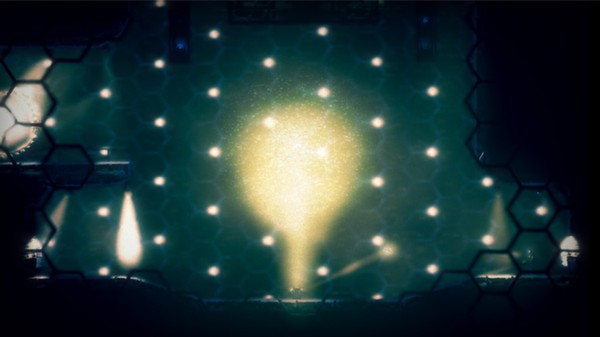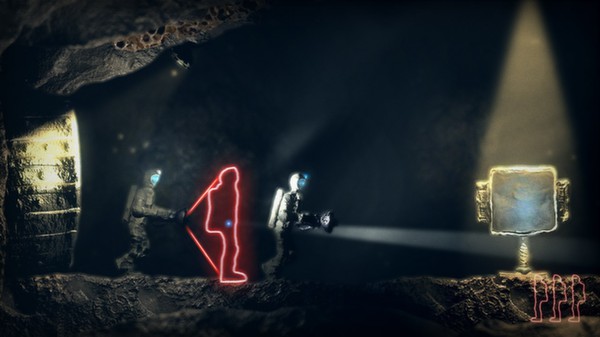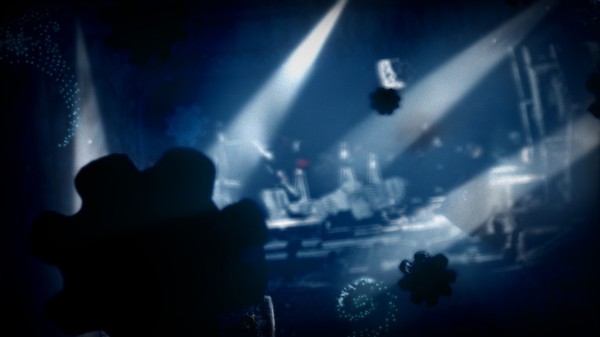Let you ignore The Swapper? I'm sorry, Dave. I'm afraid I can't do that.
The Swapper reminds me of my favorite film of all time—2001: A Space Odyssey. Both clearly share the sci-fi setting and narrative, but a closer look reveals more meaningful similarities. They challenge and confront the audience. They ignore lengthy exposition and instead focus on mood and tone. They convey singular experiences that resonate long after their conclusions. In short, they're both fantastic.
Much like 2001, The Swapper presents a narrative that explores complex philosophical ideas and themes. Space stations attempt to find materials to aid Earth's lack of natural resources, but the discoveries transcend the straightforward mission. Just a few moments into the game players encounter rocks capable of thought and expression, which quickly marks The Swapper as an unusual and unsettling title. It's safe to say I've never played a game before in which a rock asks, "What is where? How is where? Does where tick?"
The narrative also explores the moral implications of cloning, as scientists create a device—the eponymous Swapper—as a way to craft multiple versions of a single individual. The plot points themselves will likely prove divisive, since The Swapper's story occasionally frustrates and fails to emotionally resonate in key spots. But it also creates a tone in which isolation and eeriness permeate and fester, which instills a sense of dread that stands as one of the game's greatest strengths.
In addition, the tone transitions brilliantly into the game's mechanics. The Swapper uses its puzzles as a means to reinforce its distinct atmosphere. Every single obstacle requires the use of the Swapper, where players must create numerous clones and shift back and forth between the multiple versions of the protagonist. It ties into the narrative and tone in that these clones don't live past a few moments. They are quickly discarded like trash after every little victory, and it raises questions of ethics and morals that represent the heart of the narrative. It also gives way to creepiness—clones can fall to their deaths, which results in a forceful thud. I initially laughed at these moments, but soon found each ensuing thud more and more uncomfortable.
Then again, it's hard to feel comfortable when a series of increasingly difficult puzzles are being thrown your way. Creating and swapping between clones is easy… until lights obstruct the player's view and prevent certain actions. Clones can't be created in blue lights, while red lights prevent swapping. That eventually gives way to purple lights which enforce both restrictions, and by the time I reached the end of the game I was hitting my head against the proverbial wall many times. But it reminds me of Braid in that I feel like a genius with each new solution—the lows may be low, but the highs are really high.
The presentation in The Swapper further enhances the experience, albeit in an unusual way. I say that in reference to the game's visuals, which heavily utilize found objects and clay models. It sounds unusual for a game to focus on hand-crafted visuals when its premise addresses science-fiction and technology, but it actually creates an intriguing juxtaposition in which no atmosphere is lost. Somehow the unique art style fits the game well, and looks amazing in the process. The sound design also contributes to that atmosphere with its emphasis on effects and spare piano music.
The Swapper originally came out on PC in 2013, but now the game can be played on Sony platforms. I remember relying on the precision of the mouse when I first played the game, but my time with the PS4 and Vita versions alleviated my concerns. The PSN version uses the right analog stick to aim the Swapper, where the controller obviously has less precision than a mouse. But I never felt completely hindered by the control scheme, especially since the use of the Swapper slows down time and allows for quick adjustments. In fact, Curve Studios doubled the slow-down time for the PSN version to compensate for the right analog stick. The Vita version also features touchscreen support, but I found it largely useless since my finger covers too much of the screen.
No matter the platform, The Swapper is a game that people should play. It may be a year later, but the game still stands out as one of the most creative and forward-thinking indie releases in recent memory. Those who originally experienced the PC version know its success as a tough-as-nails puzzle game with outstanding atmosphere, and now PS3/PS4/Vita owners can share that experience too.
-
Distinct atmosphere and tone
-
Philosophical narrative
-
Story can be obtuse at times
-
Core swapping mechanic feels novel
-
Challenging puzzles
-
Some <i>really</i> challenging puzzles
-
Unique visuals that use clay models
-
Right analog stick is less precise than a mouse
-
Cross Buy support
The Swapper
-
The Swapper #1

-
The Swapper #2

-
The Swapper #3

-
The Swapper #4

-
The Swapper #5












